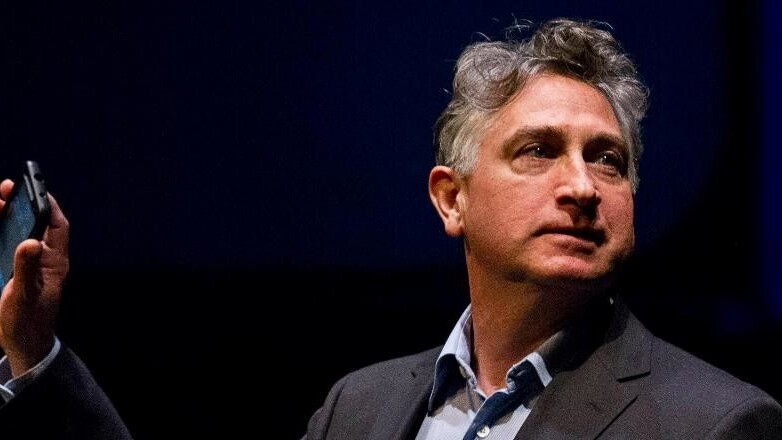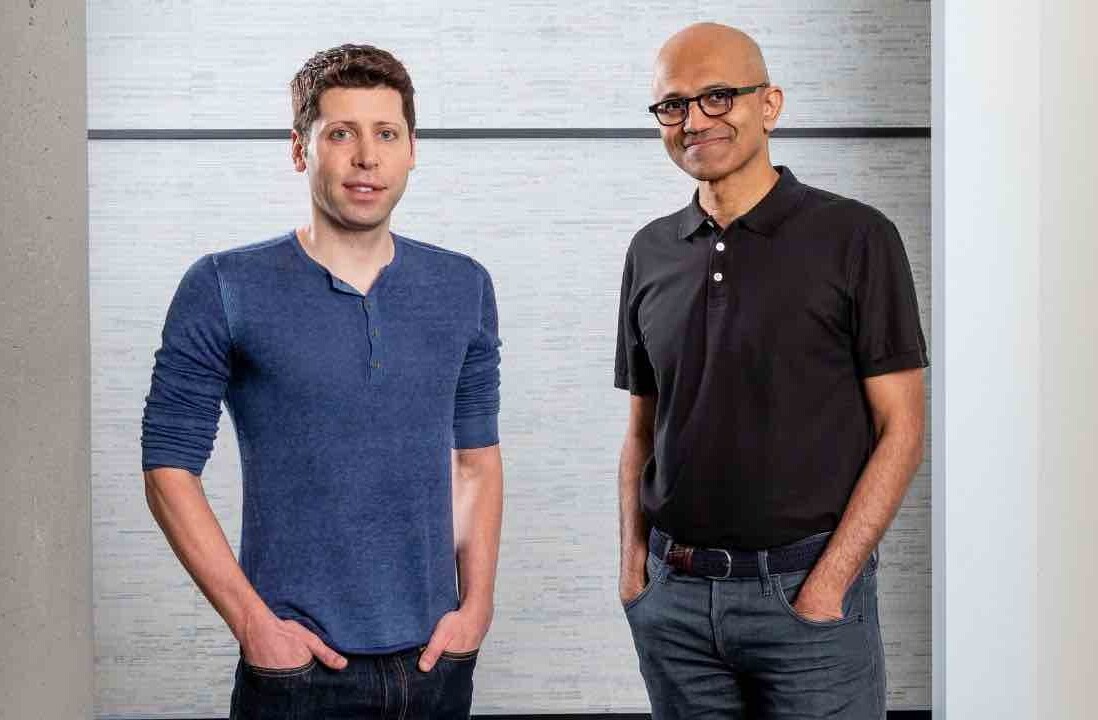
We’re less than two weeks away from the first ever TNW Conference USA, taking place in the Big Apple from October 1 – 2.
We have a ton of top speakers lined up for the two-day event, including Adam Leipzig, former Senior Vice President at Walt Disney Studios, former President of National Geographic Films, and current CEO of Entertainment Media Partners.
Leipzig has been a producer, distributor or supervising executive on more than 25 films, including March of the Penguins; Honey, I Shrunk the Kids; and Dead Poets Society, garnering in the region of $2 billion in revenue along the way.
Last week, we caught up with Leipzig ahead of his keynote at TNW Conference USA, to whet our appetites and get a little insight on the main topic of his talk: how technology is disrupting entertainment.
From DVDs to Streaming

Broadly speaking, Leipzig identifies one of the biggest technological changes in recent times as being the advent of DVDs round about the turn of the century.
“In the the year 2000, DVDs really exploded,” he said. “Remember we all went out and bought lots and lots of DVDs and we went to IKEA and bought shelves to put all these DVDs on?”
Granted, VHS preceded this by some margin, but with DVDs came affordable, digital-quality movies to homes around the world. Dim the lights, hook up your player to a 50″ TV with surround sound, and you could at least get close to pretending you were enjoying a theatrical experience.
But the next big ‘thing’ to really change the entertainment world order was, of course, streaming. YouTube and the like were already acclimatizing the masses to the concept of on-demand video, though it often just featured home-made skits of giraffes on rollerblades (not really). That said, the scourge of people uploading clips and even full episodes of films and TV shows has garnered many criticisms for Google’s video platform, which has led it to develop a range of tools to combat piracy.
Meanwhile, Netlix ensured it didn’t suffer the same fate as Kodak, by staying ahead of the game and embracing emerging technologies. Having offered a DVD delivery service since the late 90s, Netflix shifted its attentions to streaming in 2007 and that was really the beginning of it all.
“Streaming really exploded around the year 2010,” says Leipzig. “We shifted from a commodity economy of entertainment, where we had to own CDs, DVDs and so on, into a pure experience economy – where we just want it, we want it now but we don’t have to own the physical things. The biggest technological changes that we’ve seen in entertainment have been how audiences receive their content, moving from experiences that are away from the home, towards experiences that are inside the home. It’s a shift in technology, but also a shift in marketplace and distribution, these changes – the explosion of DVDs and the explosion of streaming – supercharged the entertainment business economically for periods of time.”
What we’re talking about here, of course, is the shift from ownership to access. This isn’t restricted to the movie and TV industry, but the music industry too, with the likes of Spotify, Rdio, Deezer and all the rest proving that many people simply want unbridled access, rather than shelves full of discs.
Sticking purely to the visual entertainment realm for now, however, what does this shift from ‘away from home’ to ‘inside the home’ mean for movie theaters?
“The quality of the in-home experience has really increased – both in terms of picture quality, sound quality and also the quality of content,” says Leipzig. “It’s completely competitive with what we might see in a cinema – in fact, I’d argue that the best writing and the best character development is generally happening on Web or TV series. I would include shows from Netflix, as well as cable networks. There’s better character work, better writing, than we see in most studio movies.”
So why is this the case? A quick glance down your local cinema listings will likely surface a slew of sequels and remakes, and that reveals a lot about the current state-of-play in Hollywood.
“Studio movies are big economic plays – most summer movies cost $200m to make, and another $200m to market,” says Leipzig. “The day that they open, the studio is risking $400m on that opening weekend. There is a propensity to play it somewhat safe.”
Franchises are the name of the game these days, because with franchises you don’t have spend multiple millions of marketing dollars to tell people what a movie is about. “The story has pre-awareness, and that makes it easier for audiences to decide that they want to go and see the movie,” continues Leipzig. “At the same time, it make movies repetitive, it makes movies less innovative, and I’ve actually begun to get a sense that audiences are getting tired with franchises and reboots because they all feel so similar.”
So movie theaters will become obsolete, right? Well, maybe not.
RIP cinemas?

“These technology disruptions aren’t going to destroy the theatrical movie business, but they are going to change it,” explains Leipzig. “Because I believe audiences now decide – even before a movie opens – whether they will see it in a cinema, or see it at home.
“There are certain types of films that people really love to see at home, and they are experiencing a renaissance,” he continues. “Documentaries are a perfect example. Documentaries have a very limited theatrical cinema life, but they are exploding on online services such as Netflix and Hulu.”
On the flip-side, some genres of movie are simply better enjoyed in a group setting.
“I think there will always be a demand for getting out of your house and experiencing things with other people, in a communal setting,” continues Leipzig. “Comedies are a great example – comedies are not so funny if you’re sitting alone at home. But they’re really funny in a theater with 400 other people. We’re communal creatures, we’re social creatures, we love to get out and experience things with our fellow citizens, but I do think it changes what people will want to experience out of the house.”
Crowdfunding

Crowdfunding has emerged as a powerful tool for anyone looking to get their projects financed and off the ground, including movies such as the UK filmmaker who crowdfunded the DVD release of his ‘First Orbit’ documentary, which had become something of a YouTube hit.
There was even an Indiegogo-funded Oscar-winning film, and Indiegogo recently partnered with Forest Whitaker’s production company too – a partnership that isn’t so much about funding his films, but more as a market validation tool. When the global masses put their money into a project, this means they’re really on to something. It’s a little like market research, and gets the big guns interested.
So how are the movie studios responding to this new funding model?
“Studios are responding to it in a minor way,” says Leipzig. “They are throwing a lot of money at social media campaigns, and they’re looking closely at crowdfunding. There have recently been some crowdfunded movies, such as the Veronica Mars movie, that actually are studio films. The crowdfunding isn’t so much about providing money, it’s about market validation and proof of the audience.
“But even more than market validation, now there’s a large crowd of people who have contributed money, whom the filmmakers and studio can have direct, two-way communication with,” he continues. “These people will become the ambassadors, and evangelists, for that movie when it comes out. I believe that crowdfunding is 40% about the money, and 60% about connecting with your audience, building your audience and creating those evangelists and ambassadors for when the project is ready for launch.”
Though Leipzig reckons crowdfunding has a big future in the entertainment industry, he says it will be more powerful for non-studio, independent movies, and funders may soon be able to share actual movie profits – something they’re not currently able to do. “There’s changes coming in the SEC rules in the States, which will allow crowdfunded projects to also offer profit participation to the individuals who make contributions. That will make a big difference.”
Profitability and patterns

Despite what you may have been led to believe, it seems that movie studios are actually doing rather well. For the moment, at least. They have taken stock of the situation, and Leipzig says he anticipates this profitability will continue for a number of years – though not indefinitely.
“Studios are incredibly profitable now, and studios will continue to be highly profitable for the next 3-4 years, largely because they have reduced the number of movies they make, and also because they are being much more conservative in the way they manage their finances,” continues Leipzig.
“In the future though, 5 or 6 years down the road, this cycle will come to an end,” he adds. “The studio profitability will go down, and there will be cause for much introspection – and I think that’s the point where things really start to turn around, and the content starts to change in concert with whatever the next disruptive invasion is that will take us through the following decade.”
And this is where things start to get interesting, from a predictive perspective at least. Leipzig has worked in the industry for decades, and has established patterns that help inform what lies ahead.
“One of the things I’ll be talking about at the conference is that there is a predictable pattern of rising and falling profitability and innovation, that we see in the entertainment business,” says Leipzig. “This will allow us to predict what is about to come, and I’ll be making some predictions on this front. The reason it’s good to look at the media business, is it’s one we can actually have some data on, but also the media business is one that mirrors our culture and mirrors our society, so it serves as a good bell weather for what’s happening generally.”
In his talk, Leipzig will start way back, in a place and a time when people didn’t even realize technology was disrupting entertainment, before rocketing forward to the turn of the century, going from the 1800s to 1900s, and look at the last 110 years at the changes that have occurred in technology and how it’s impacted the entertainment industry.
“I think the predictions are going to be very interesting, it will help people make decisions about how to stay ahead of the trends,” he says.
Meanwhile, if you’d like to be at TNW’s first ever US conference, there are still a few tickets left.
➤ TNW Conference USA | Adam Leipzig
Image Credits
Feature Image Credit – Flock Studio | Image 1 – Thinkstock | Image 2 – Thinkstock | Image 3 – Thinkstock | Image 4 – Thinkstock
Get the TNW newsletter
Get the most important tech news in your inbox each week.




